The Epistemology of Power and Its Repercussions on the Muslim World
The core culture of a society is defined by the systems it has implemented for disseminating knowledge. But these systems are never independent of the broader power structures. The influence of the relative distribution of political and social power throughout the social body is highly decisive in shaping the core beliefs held by that society as the “Truth.” Michel Foucault, in his work Discipline and Punish, points out how the evolution in the methods of punishment and enforcing discipline is directed by changing means of asserting power. He says that “the exercise of power perpetually creates knowledge and conversely…Knowledge constantly induces effects of power”.This thesis can be considered largely universal.
Changing the narrative: some pragmatic examples
One of the methods used to justify the colonial regime in India was the classification of Indian history by James Mill in his "The History of British India," which was divided into three periods: Ancient, Medieval, and Modern. These were taken to correspond respectively to Hindu, Muslim, and British (or "secular") rule. Modern historiographers like Romila Thapar reject this as a stereotypical and colonial depiction of a deeply nuanced society. However, the problem was that Mill's book became a formal training text for Indian civil servants during the colonial era. Consequently, the subtle ideas embedded in these narratives have become so deeply ingrained in Indian consciousness that a genuine deconstruction of them remains a distant possibility.
The most important minister in Hitler's cabinet was Joseph Goebbels, who was entrusted with interpreting German history as envisioned by the Nazis and institutionalising this interpretation as the only “true” conception of reality. This is what the term propaganda meant. It extended beyond formal education to dominate the public discourse and silence all dissenting voices. The same pattern was evident in Communism, as depicted in George Orwell’s political satire 1984, where the state slogan was "who controls the past controls the future and who controls the present controls the past", an archetype of distorting history. In all such cases, beliefs of the common man were shaped by dominant discourses that controlled knowledge production, which in turn were deeply tied to the power structures of society. New “Regimes of truth” were being formed by each ideology.
Evolving Religions: A Journey from Truth to Power
Thus, the question of true societal emancipation looms large. The complementary nature of knowledge and belief emphasises the potential of each to transform the other, for better or worse. This is where religion comes in. By upholding belief in an entity beyond material perception and defining the entire world in terms of this belief, religions establish a corpus of values and principles that are deeply rooted in the communal consciousness. This framework is never violated because it is grounded not in the subjective human mind, which fluctuates with dominant ideologies, but in the objective existence of a transcendent being who embodies these values and holds transgressors accountable, not to temporal authority, but to divine ordinance. This objective morality guides social functioning and aligns the educational discourse with these values. This is beautifully proclaimed in the Qur’anic declaration of the believers: Sami‘nā wa ata‘nā — “We hear and we obey.”
However, the human desire for a more imminent authority often corrupts religions. Temporal authority replaces divinity. When Saint Paul institutionalised the Church in the early centuries of the Common Era, the authority to dictate ethical conduct, both individual and social, was again transferred to human institutions. With the Edict of Milan (313 CE) and later under Emperor Theodosius, Christianity became the official dogma of the Roman Empire and was transformed into a legitimiser of temporal authority. Religion redefined itself through new structures of power. The power to decide on ethics later gave way to the power to determine beliefs. Through various Church Councils (such as Nicaea and Chalcedon), official Catholic theology was codified, and alternate perspectives were suppressed. The Greek intellectual tradition saw its end with the closure of the Academy of Athens by Emperor Justinian in 529 CE. Christian sects, such as the Nestorians, were denounced. Religion lost the courage to speak truth to power and instead submitted to it — the very power that had once persecuted its followers.
This story has parallels in all major religions. Gautama Buddha and Mahavira Vardhamana were consecrated, and temples were erected to venerate them, despite the fundamentally agnostic nature of their teachings. Hinduism was deprived even of its monotheistic origins, and the priests endowed with the power to decide on matters of this world produced works like the Manusmriti, which outlined a comprehensive theological scheme for social fragmentation. Jewish history became dominated by the narrative of the Exodus, and their tribal loyalty became a unifying force that turned their faith into a socio-political and economic ideology, allowing them to remain distinct across the diaspora, and become hoarders of wealth with the sole aim of establishing the kingdom of god on earth. What happened in all these cases was the utilisation of the power of religion to construct firm belief as a means for ends not wholly fit to be called divinely ordained.
The Islamic Epistemology: Beyond the Man
But Islam stands apart in significant ways. The absence of a monolithic conception of the world — unlike in other traditions — is a key reason. A vibrant intellectual tradition existed in Islam from its very inception, but it never evolved into an official priesthood aligned with the ruling elite. This is not to say that Muslim ulema and rulers were always independent. That would be a reductive argument. There were ulema who were closely tied to dominant powers and vindicated state actions. Pressure on ulema to conform to rulers’ whims was always present. The mihna (inquisition) initiated by Caliph al-Ma'mun in 817 CE to impose Mu‘tazilism, the Fatimid da‘wah, and the post-revolution suppression of dissent in Iran — all reflect how temporal authority sought to dominate religious scholarship.
However, the sacred tradition of Islamic knowledge, grounded in the prophetic statement al-‘ulama’ warathat al-anbiya’ (the scholars are the inheritors of the prophets), persisted despite the lack of patronage or outright persecution. Imam Ahmad ibn Hanbal’s resistance against the Mihna led to the decline of Mu‘tazilism. Isma'ilism was pushed out of Egypt and later to remote strongholds like Alamut and South Asia. The very revolution that established the Islamic Republic in Iran is now being critically examined from within the country.
Modern critical theory tends to view everything as the outcome of historical processes. The Qur’an is thus treated as a historical document, and Muslim scholars are seen as projecting wholly subjective attitudes in their scholarship. Wild claims like that of Amina Wadud — that Islam favours men because the scholars were men — reflect this mindset. What is not recognised as academically valuable is an allegiance that transcends history, culture, and personal belief. Yet this is precisely what characterised traditional Muslim scholarship. To qualify as a mujtahid, one must combine devotion to Allah with comprehensive Islamic knowledge. This devotion entails a metaphysical journey that transcends the self, not in the mystical Sufi sense of fanā’, but in the sense of breaking free from the constraints of social formation and realising the full potential of the rational intellect. Recent scholarship like Joseph Lumbard (2024) directly addresses this: he emphasises an “underlying epistemic unity” in Islam (linking revelation, natural science and wisdom) and warns that modern scholars often read Islamic texts “independently of the cognitive cartography” that initially framed them. This holistic conception of reality grounded in Allah is what provides Islamic scholarship with an objectivity that modern sociology and anthropology seek but can’t find. As allah says: “Sanurīhim āyātinā fī al-āfāqi wa fī anfusihim ḥattā yatabayyana lahum annahu al-ḥaqq”. “We will show them Our signs in the horizons and within themselves until it becomes clear to them that it is the Truth.”
When metaphysics lost its epistemological primacy, it became impossible for centred modern knowledge to conceive of a system grounded in God instead of man. The result is the paradox of modern science: it seeks the same objectivity it forfeited during the Enlightenment in a place where it can never be realised, in the human mind.
Subtle Indoctrination: Creation of Orthodoxies in the Modern West
Virtually everything historically significant after the Enlightenment was achieved through the soft power of intellectual speculation serving mass mobilisation, rather than through the hard power of brute force. Rousseau’s Social Contract legitimised the nation-state not by appealing to divine rights but to the collective intellect of society, which agreed to sacrifice some liberties for the common good. Post-revolutionary political systems were all built on a single foundation: the indoctrination of citizens through state-controlled education. This is why Communist regimes feared independent systems of traditional education. This is also how Western values became universal values, as seen in Lord Macaulay’s Minute on Indian Education in 1835. While this was not always a force for the worse, it always carried the potential to be so.
The consequences are far-reaching. Rupert Sheldrake, in his work The Science Delusion, critiques how intellectual orthodoxies were established in Western scientific establishments, turning science from a method into a creed. Speculating and experimenting beyond this framework became forbidden. Outright rejection of non-Western medicine is a case in point, as it resulted in the reduction of the prophetic medicine to the so-called "placebo effect". The true spirit of the Scientific Revolution was the questioning of established beliefs, and those who were not ready to stand up against authority often went unappreciated. Columbus never accepted that he had discovered lands unmentioned in biblical geography, but Amerigo Vespucci, who acknowledged it, had two continents named after him. What happened during the Renaissance was the birth of a new intellectual tradition distinct from — and often opposed to — Church-backed scholasticism. However, in Islam, something comparable already existed: a parallel tradition in which scholars with standing used knowledge to challenge power-backed beliefs.
The Nation-State and Perpetuating Intellectual Hegemonies
None of this is merely a story of the past. What the modern nation-state did was to remove God as the object of ultimate loyalty from the social conscience and replace it with the state. The state became that which demanded every form of subjective human adoration. While religion was accused of encouraging apathy by advocating submission to an abstract entity, the state institutionalised an all-encompassing surrender of its citizens to its authority by controlling the mechanisms of knowledge and discourse production.
Today, this process is extremely covert, but a simple reflection on how freedom of expression functions in modern society suffices to reveal how misplaced the mass admiration for that "freedom" truly is.
The problem is that, while in theory every voice is allowed to persist, only some are amplified while the rest are condemned by both media and society. With the formal press under government influence, and the seemingly independent social media platforms succumbing to financial incentives from the state, dissent can be easily silenced. Regulations on research funding are manipulated to favour only state-aligned perspectives. Ultimately, the agency of the common man to speak the truth is subordinated to the state's authority to construct the truth. The state becomes the bearded man in the clouds, showering manufactured wisdom upon the masses. It was about this structuring of the boundaries of discourse that Noam Chomsky said, "The smart way to keep people passive and obedient is to strictly limit the spectrum of acceptable opinion, but allow very lively debate within that spectrum."
Construction of the Muslim: The New “Other”
It is in relation to Muslims themselves that a particularly revealing picture of this power function emerges. Muslims are almost wholly absent as agents in these discourses but are wholly present as objects, especially after the collapse of the Soviet Union in 1991, when the United States began to cast about for a new enemy and found it in the Muslim world. The Crusades never truly ended, but it now assumed an added intellectual weight.
The image of a veiled woman hidden beneath the authority of bearded men with no agency of her own was carefully constructed by the U.S. government and media at the onset of the war in Afghanistan in 2001. Feminism, which had once challenged patriarchy in the West, was appropriated by the same structures of power to justify imperial hegemony abroad. Art and literature were marshalled in support of this ideological project. The Jyllands-Posten cartoon controversy of 2005 portrayed Muslims as a reactionary force still lurking in the dark ages, unable to accept the enforcement of the right to expression. Salman Rushdie’s The Satanic Verses served a similar function, becoming a literary weapon used to define Islam as incompatible with enlightenment and progress. Thus, through a complex web of cultural, political, and intellectual mechanisms, an entire religious identity was constructed as a group of ignorant people who had nothing to do in this world except hinder the triumphant march of the West towards progress.
A final word must be said on the portrayal of the Palestinian conflict. It is, quite simply, a grand narrative of erasure and distortion. The first lie is that it began on October 7, 2023, and that Palestinians are the aggressors. Such framing betrays either profound ignorance or willful deception. Even more troubling is the West’s inability—or unwillingness—to call the ongoing assault a genocide. The posture of Western powers in this conflict exposes the hollowness of their self-professed values and utopian aspirations. The complicity of the media in these war crimes is stark, particularly in the coverage of state crackdowns on pro-Palestinian protests. This has been glaringly evident in the treatment of student demonstrations, such as those at Columbia University, and in the arrest of voices like Mahmoud Khalil.
Academic scholarship should go beyond the frontiers imposed on it by hegemonies of the day. This should be done not only in Islamic studies but also in secular disciplines. The unveiling of the Truth should begin by deconstructing the narratives of dominance. It is only in this way that muslim intellectuals can find the true legacy of Islam untainted by centuries of epistemicide.
About the Author
Muhammed Nishad .K is a Degree First Year scholar in the Department of Arabic Language and Literature at Darul Uloom Islamic Daʿwa College, Thootha.
REFERENCES
- Michel Foucault, Discipline and Punish: The Birth of the Prison, trans. Alan Sheridan (New York: Vintage Books, 1995).
- Rupert Sheldrake, The Science Delusion: Freeing the Spirit of Enquiry (London: Coronet, 2012).
- Ziauddin Sardar, Desperately Seeking Paradise: Journeys of a Sceptical Muslim (London: Granta Books, 2004).
- Edward W. Said, Orientalism (New York: Pantheon Books, 1978).
- Edward W. Said, Covering Islam: How the Media and the Experts Determine How We See the Rest of the World (New York: Pantheon Books, 1981).
- Yuval Noah Harari, Sapiens: A Brief History of Humankind (London: Harvill Secker, 2014).
- Romila Thapar, The Past as Present: Forging Contemporary Identities Through History (New Delhi: Aleph Book Company, 2014).
- Lila Abu-Lughod, Do Muslim Women Need Saving? (Cambridge, MA: Harvard University Press, 2013).
- Amina Wadud, Qur'an and Woman: Rereading the Sacred Text from a Woman’s Perspective (New York: Oxford University Press, 1999).
- Talal Asad, The Genealogies of Religion: Discipline and Reasons of Power in Christianity and Islam (Baltimore: Johns Hopkins University Press, 1993).
- Wael B. Hallaq, The Impossible State: Islam, Politics, and Modernity’s Moral Predicament (New York: Columbia University Press, 2013).
- Joseph Lumbard, Islam, Law, and the Challenges of Modernity (Oxford: Oxford University Press, 2010).
- George Orwell, 1984 (London: Secker & Warburg, 1949).
- K. Ali, The History of Islam (Karachi: Oxford University Press, 2009).
- Noam Chomsky, Democracy and Power: Essays on the State and Capitalism (San Francisco: City Lights Publishers, 2015).
Disclaimer
The views expressed in this article are the author’s own and do not necessarily mirror Islamonweb’s editorial stance.

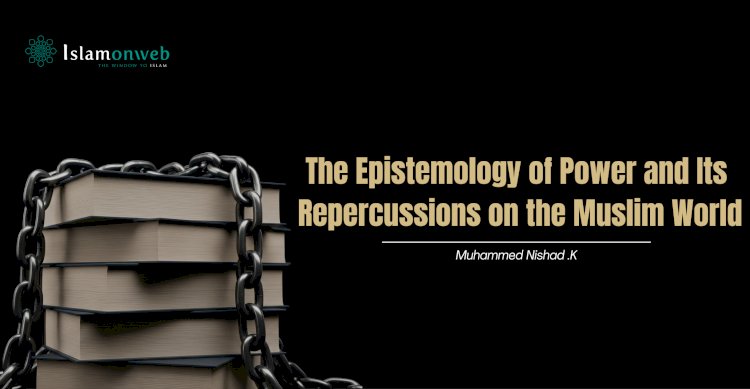


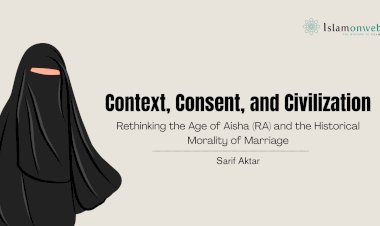
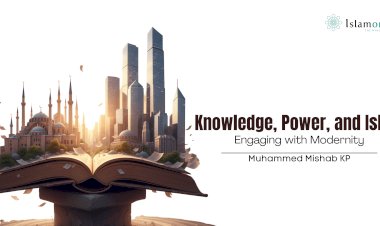
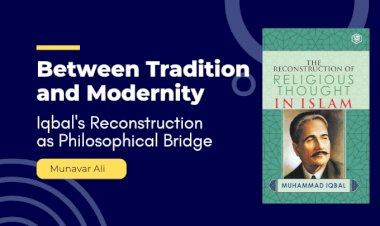
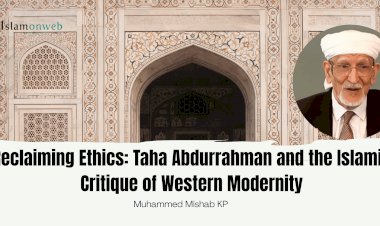
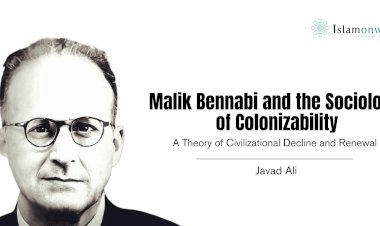
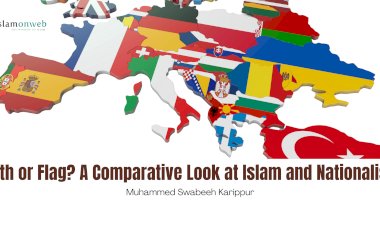














Leave A Comment